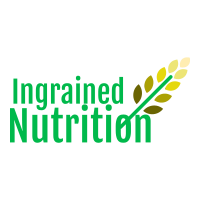Nutrition and immunity: this is a topic we talk to clients about a lot, especially in the lead up to winter flu season. Did you know that there are specific nutrients that are essential to our immune system? Without these, our bodies can’t fight off bacteria and viruses well, and we find ourselves getting sick more often.
Luckily, most of these essential immune nutrients are found in whole foods. If you eat a well-balanced diet, you’re likely to get enough of them all.
What nutrients are essential for immunity?
There are a few key nutrients that your body needs to keep your immune system at its best.
Vitamin C: an important building block in nutrition and immunity
Vitamin C is found in a wide range of foods: capsicum, kiwi fruit, strawberries, and of course, citrus fruits. It’s also found in broccoli. In adequate amounts, Vitamin C may reduce the likeliness of an illness, but not the severity.
This means that once you are sick, it’s likely too late to increase your intake of Vitamin C! It works more effectively as a preventative. It’s also essential in producing certain immune cells, and collagen synthesis. This is critical for wound healing.
Luckily, most adults’ daily requirement for vitamin c can be found in just ½ cup of broccoli. For the majority of us, supplementing with Vitamin C is unnecessary, if you eat a balanced diet including plenty of fruit and vegetables.
Vitamin D: a sunshine-made friend of immunity
Like Vitamin C, Vitamin D intake may decrease the likeliness of illness but not the severity of symptoms. Vitamin D deficiency is more common, because our bodies produce Vitamin D when in sunlight. Sun protection is important for preventing skin cancer, and as a result, some people don’t get exposed to enough sunlight to produce the Vitamin D they need. This can be especially the case in the colder months of the year.
Luckily, in Australia, not much sun exposure is needed to help your body produce enough Vitamin D. If you get very little sun at all, then there are food sources of Vitamin D that can help. Eggs and salmon contain Vitamin D naturally. Also, some foods such as margarines, and some types of milk, are fortified with Vitamin D.

Zinc: protects against oxidation and grows immune cells
Zinc is a trace element, and an important one for immunity. It helps protect cells from oxidative damage, by detoxifying free radicals. Free radicans can damage your cells from the inside. It also helps increase the growth of immune cells. Being zinc deficient can lead to a decreased immune response. Zinc is also important for DNA synthesis. It’s important for maintaining cell membranes, and helps to regulate wound healing, too.
Vegetarians and vegans are at a higher risk of being zinc deficient. That’s because our main food sources of zinc are meat, chicken, and fish. In addition, many of the vegetarian sources of zinc are also high in phytate: a chemical which blocks zinc from being absorbed into the body. All this means that vegetarians and vegans have to be extra careful to monitor their zinc levels.
Soaking legumes and lentils before consumption can help reduce phytates. Tinned versions of these are lower in phytate, too. If necessary, vegetarians and vegans are good candidates for zinc supplements.
Probiotics: are they important to nutrition and immunity?
Probiotics have been shown to decrease the severity of an illness and reduce the likelihood of getting sick. Our gut is a key component of our immune system. It’s constantly exposed to toxins and foreign bodies from food and microbes. This means the gut has to be ready to defend the body as a first line of defence.
The main benefit of probiotics is helping to restore balance in the intestinal microbiota. They increase the “good” bacteria, and balance out the “bad” bacteria. These strains have good evidence behind them for immune health: Lactobacillus casei, Lactobacillus reuteri, Lactobacillus rhamnosus and LcS (Yakult).
Having a course of antibiotics can disrupt your gut’s balance, and probiotics can help put things back right. Food based sources of probiotics include yoghurt, fermented milk drinks such as yakult and kefir, kimchi, miso, and sauerkraut. Fibre, from fruits and vegetables, is an important prebiotic, as it becomes food for the bacteria in your gut.
What about supplements: do they contribute to nutrition and immunity?
Consuming your vitamins and minerals in the form of supplements is not required unless you are deficient. If you eat a balanced diet, you’re likely to get necessary nutrients already from the food you eat.
We always recommend seeking professional advice before buying supplements. They are expensive, and your body can’t use more than it needs. The extra will be discarded by the body – literally down the toilet! If you have a balanced diet and no nutrient deficiencies, your immune system is likely to be functioning well.
For picky eaters, or people with special dietary requirements such as avoiding foods that trigger IBS, supplements can be necessary and very helpful. If you do suspect you have a deficiency, reach out to one of our helpful Dietitians. We can help you to assess your dietary and supplement needs. Find a Dietitian near you today.




